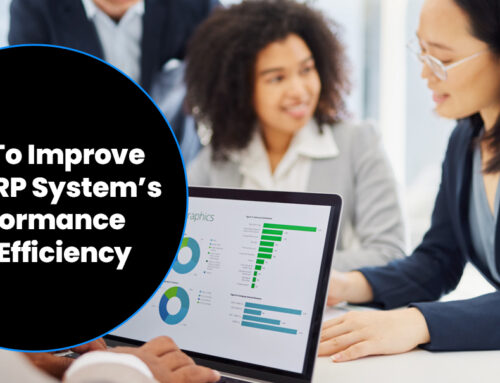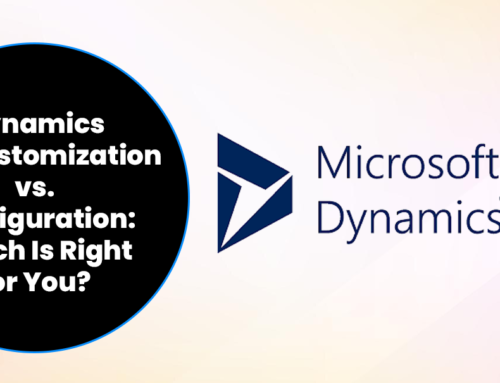
An SAP enterprise resource planning platform serves as a company’s digital core, centralizing operations in a single integrated platform. That said, the individual who underestimates the complexity of an SAP ERP data migration is in for a nasty surprise down the road because they’re apt to encounter snarls and snares at every turn. This is one project that demands an experienced tech team to oversee the data migration process from start to finish.
Still not convinced? A quick Google query on the topic of SAP ERP data migrations will turn up dozens of ebooks and checklists — some with over 120 steps! Most ERP experts are going to recommend that you call in a team of pros when you find yourself browsing 120-step checklists and 87-page “introductory” ebooks in an attempt to embark upon a DIY data migration project. In fact, many would argue that building the right SAP ERP data migration team is perhaps the single most critical factor in a project’s success.
What is SAP ERP?
SAP’s enterprise resource planning (ERP) platform is a complex cloud-based software interface designed to centralize a company’s operations. The most current version is SAP S/4HANA Cloud, described by SAP as a “future-ready” ERP system that features “built-in intelligent technologies, including AI, machine learning, and advanced analytics. It helps transform business processes with intelligent automation, built for the cloud, and runs on SAP HANA – a market-leading in-memory database that offers real-time processing speeds and a dramatically simplified data model.”
By definition, an enterprise resource planning platform is comprised of multiple modules to accommodate various business processes. SAP’s ERP platform is no exception to this rule. There is a finance and bookkeeping region of the platform. There are tools for retail, sales, and customer service. Other areas of the ERP system are utilized by research and development (R&D)/engineering staff. There are modules for the manufacturing division, the sourcing and procurement staff, the supply chain and fulfillment department, and the asset management division. The platform also includes integrations with point of sale (POS) systems, analytics, and reporting tools.
While SAP ERP is designed with larger companies and enterprises in mind, smaller ventures, mid-sized enterprises, and even startups use the platform too. The cloud-based nature of this ERP system means it is highly scalable and cost-effective for organizations of all sizes.
Will My Organization Need to Perform an SAP ERP Data Migration Project?
To leverage SAP ERP to maximum benefit, you will need to perform data migration. The exception would be for organizations that are just starting out; a true startup that deploys an SAP ERP platform on day one may not have any data to transfer. But this is rare. Virtually all new organizations opt to deploy an ERP system at some point after they’ve completed the launch phase; this means they start out with data spread across disparate, stand-alone platforms. Once you have multiple data sets in play, migration is required to pull them all together into a central ERP database.
An SAP ERP data migration project entails transferring and consolidating data from multiple platforms. It is a complex task that demands a team of experts who are familiar with data migration projects and the many SAP ERP data migration tools that are present on the interface.
A do-it-yourself SAP ERP data migration is generally regarded as ill-advised due to the complexity of the platform and its tools. The consequences of an improperly-performed data migration project can be costly to say the least. The only thing worse than no data at all is untrustworthy data. It’s easy to accidentally introduce errors and flaws during the data migration process. What’s worse, you may not even realize that the data has been corrupted. This can have a disastrous impact if you use that data to inform business decisions. This underscores the importance of building an experienced team to oversee your SAP ERP data migration project.
SAP ERP Toolsets
To add another layer of complexity, SAP has multiple ERP migration toolsets. The following are just a few available for its newest cloud ERP software, SAP S/4HANA Cloud.
- SAP Data Services (DS)
- SAP Information Steward (IS)
- SAP Migration Cockpit (SMC)
- SAP Agile Data Preparation (ADP)
- SAP HANA EIM Smart Data Integration (SDI)
- SAP HANA EIM Smart Data Quality (SDQ)
Each SAP toolset is best suited to a specific ERP environment and a particular type of data. Using a toolset under the wrong circumstances can lead to slowdowns and even the introduction of errors. In addition to the above mentioned, there are legacy toolsets that work on some of SAP’s platforms, but not others.
The Importance of Hiring a Team of SAP ERP Data Migration Experts
The SAP ERP platform is one of the more complex enterprise resource planning systems to be certain. But the good news is that this complexity has prompted some to pursue a career as an SAP ERP expert specializing in data migration.
There are a few reasons why an organization should opt to hire a team of data migration specialists for a data migration to SAP ERP. This is one project where just one or two specialists won’t be sufficient.
- The sheer volume of data, the size of the migration, and the complexity of SAP’s ERP systems typically demand multiple specialists.
- A well-developed SAP ERP data migration strategy is essential, so you need tech talent that is capable of evaluating your needs, developing a solid strategy, and executing according to plan.
- An experienced team will know which toolsets are best-suited to the ERP platform (i.e. cloud vs on-premises) and the data sets that you are trying to migrate.
- A team approach is prudent due to the high degree of specialization that exists amongst the SAP ERP data migration toolsets. You’re unlikely to find a single person with the required expertise.
- An experienced team will be well-positioned to identify all of the factors that can impact migration — and those factors are numerous. Everything from data format to data quality will affect the migration process, as will the data source (i.e. migrating from a SAP or non-SAP platform).
Finding the Right SAP ERP Data Migration Specialists for Your Team
Acknowledging the need for SAP ERP data migration experts is just the first step. Finding the ERP talent for your project is the next challenge.
At Cox-Little, we work with some of the top SAP ERP professionals in the industry and our experienced consultants are here to help assemble a winning team. Contact Cox-Little today to set your upcoming ERP data migration project down the path toward success.





